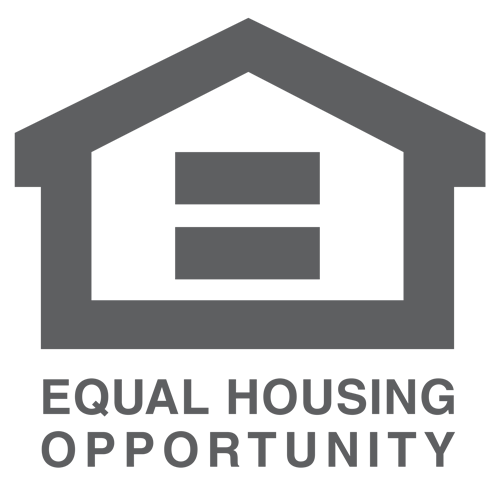Purchasing your first home is a significant milestone, filled with excitement and numerous decisions. It also involves more than just picking out a home you like. It requires a solid understanding of financial aspects, like knowing what you can afford and the importance of saving for a down payment. Beyond the numbers, it’s also about grasping key homebuying terms, such as down payment and closing costs, which will play a significant role in your journey. Here’s a first time home buying 101 guide to help.
First Time Home Buying 101:
Let’s Talk Money
Before diving into house hunting, it’s important to take a good look at your finances. Determining how much you can afford is your first step. This means evaluating your current income, savings and expenses. A helpful rule of thumb is that your monthly home payment should not exceed 30 percent of your income.
You also need to save for a down payment. That’s the initial amount of money you pay upfront when buying a home, typically a percentage of the home’s total price. The larger your down payment, the smaller your mortgage loan, which can also help you avoid private mortgage insurance (PMI).
Something many new homebuyers don’t take into account when saving up are closing costs. These are the fees and expenses you pay when finalizing your home purchase. They include charges like attorney fees, title insurance, appraisal fees and property taxes. Be sure to budget for these costs to prevent any last-minute surprises.
Handling Your Credit
Your credit score is a key player in securing a favorable mortgage rate. To keep your score in good shape, start by regularly reviewing your credit reports from the three major credit bureaus—Equifax, Experian and TransUnion. This helps you catch any errors or signs of identity theft early.
It’s also wise to keep your credit utilization low. This means using only a small portion of your available credit. Experts recommend keeping your credit utilization below 30 percent. For example, if your credit limit is $10,000, try to keep your balance under $3,000.
Another tip is to avoid opening new credit accounts or closing old ones before applying for a mortgage. New credit inquiries and reduced credit history length can temporarily lower your score. If you must open a new account, do so well in advance of your home purchase.
If you have existing debts, develop a plan to pay them down efficiently. Begin by targeting high-interest debts first while maintaining at least the minimum payments on other accounts. Consistent, on-time payments can gradually boost your credit score.
Assembling Your Support Team
Building a team of trusted professionals is crucial to a smooth home buying experience. Start by selecting a mortgage lender who offers competitive rates and terms. Shop around, compare offers and read reviews to find someone who meets your needs and provides excellent customer service.
Next, look for a Realtor who is knowledgeable about the local market and understands your preferences. A great Realtor will listen to your needs, help you find homes that match your criteria and guide you through negotiations. Ask for recommendations from friends or family, and don’t hesitate to interview multiple candidates to find the best fit.
Having a financial advisor can be beneficial, particularly if you’re navigating significant financial decisions or investments. An advisor can offer personalized guidance on budgeting, saving and managing your finances post-purchase.
The Importance of Pre-Approval
Focus on getting pre-approved for a mortgage. Pre-approval involves submitting your financial details to a lender, who will then determine how much they’re willing to lend you. This step not only clarifies your budget but also makes you a more attractive buyer to sellers.
A Few More Terms to Know
There are a few more terms you should know to help make your home buying experience smooth.
Earnest money is a deposit made to demonstrate your serious intent to buy the property. It’s usually held in escrow and applied toward your down payment or closing costs once the deal goes through.
Contingencies are conditions that must be met for the sale to proceed. Common contingencies include passing a home inspection or securing financing. Contingencies protect you by allowing you to back out of the deal if something goes wrong.
Property taxes are annual fees that property owners pay based on the assessed value of their property. This value is usually determined by local government assessments and can vary from year to year. It’s essential to be aware of these costs so you can budget accordingly.
PMI, or Private Mortgage Insurance is insurance that protects the lender if you default on the loan, and it adds an extra monthly cost to your mortgage payment. If your down payment is less than 20 percent of the home’s purchase price, you may be required to pay PMI.
Home equity is the difference between the market value of your home and what you owe on your mortgage. It’s an important concept because it represents the portion of the property that you actually own. Building equity can be a smart way to increase your wealth over time.
Escrow involves a neutral third party holding onto funds or documents until all the conditions of the sale are met. This process ensures that both the buyer and seller have security, as the escrow agent will only release the funds when all the terms are fulfilled.
Now That You Know, Visit Riceland Today
Now that you’ve perused our first time home buying 101 guide and are up on all the homebuying terms, it’s time to put that knowledge to use purchasing your first home in Riceland. Our four premier home builders can not only build the home of your dreams, but they can also walk you through the entire process. Visit us today.

